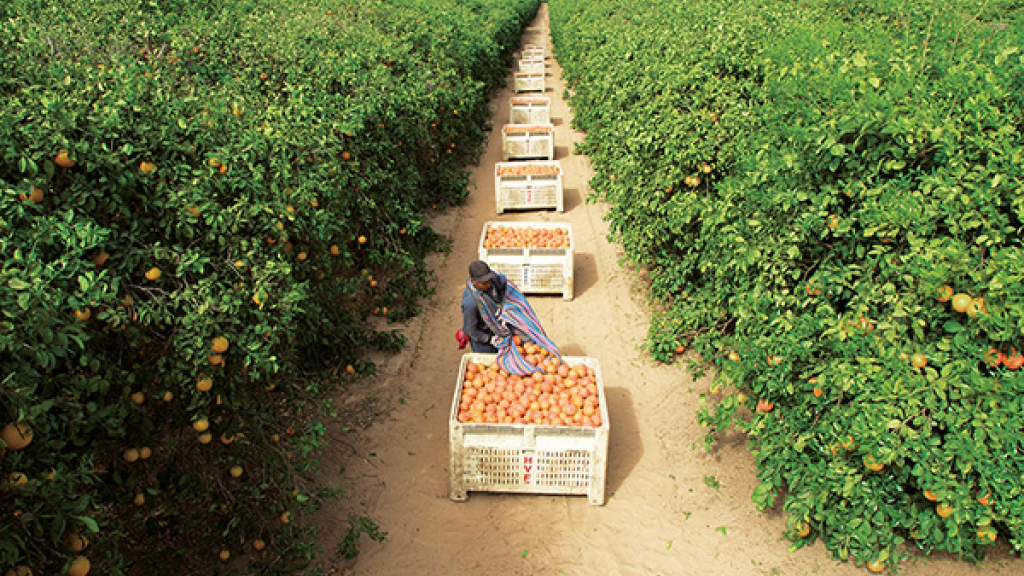
By Kimberly James; WBAP and KLIF News, Dallas, Texas.
TEXAS RIO GRANDE VALLEY – (WBAP/KLIF) The nearly $500 million Texas citrus industry is nearing the brink of collapse as Mexico continues to fail to deliver water to the Rio Grande, as required per a 1944 U.S. – Mexico treaty. Many citrus and other Valley farmers are already without any irrigation beyond the rare rainfall. The sugar industry has just closed shop in the Rio Grande Valley because of the lack of irrigation water, and the Texas citrus industry group’s Dale Murden warns Texas citrus will die next if big sanctions are not quickly placed on Mexico in an effort to force it to deliver the water owed.
Murden indicates it appears Congress is not heeding the call, nor aware of the significance of the citrus industry to the Lone Star State, the nation, and it’s international customers around the world. He urges Texas Congressmen to act with meaning, act quickly, and urges Congress in general to act fast enough to save the industry.
Thousands of Texas jobs could be lost, with recovery or a re-establishing of the industry unlikely given realities of time required in the agricultural industry. Further, Murden warns it appears Mexico may have it’s eye on growing it’s own citrus industry in the state of Chihuahua, with the very water owed to Texas via delivery to the fast-drying Rio Grande.
Murden is calling on Congress to place meaningful sanctions on Mexico for it’s failure to deliver water to the Rio Grande. The Texas citrus industry is considered the crown jewel of Texas agriculture, and employs thousands of workers. As water levels in the south Texas reservoirs continue to drop, he warns it won’t be long before agriculture will be completely cut off from acquiring water for crops. Currently, Murden says some growers are receiving water from the Colorado River, also as per a second 1944 treaty, but many more dependent upon Rio Grande water deliveries are unlikely to keep the Texas industry alive.
Some Congressmen have been visiting Mexico last and through this week, and meeting with both the outgoing and incoming presidents; agreements, for example, this week, U.S. Representative Vicente Gonzalez suggests are moving Texas closer to resumption of water deliveries. Murden believes this approach is unlikely to be a long term solution. He suggests any possible “fixes” with this friendly approach are more likely to result in temporary deliveries of some water, followed by another stoppage, possibly then putting the nail in the coffin for the famed Texas industry.
Planning for agriculture is an important part of the business in order to keep operating. “We need to plant trees right now but cannot because we don’t have the water for them”. The Texas citrus industry grows on 27-thousand acres, providing more than 9 million cartons of fresh grapefruit and oranges, and some 5 million cartons of fresh fruit juices sold in supermarkets nationwide.
The industry has been suffering through hardships but in typical Texas fashion, consistently pulling through. Murden says it was 1992 when Mexico began under-supplying the Rio Grande and ultimately Texas farmers and the citrus industry; followed by big hits with a 1982 deep Valley freeze, Hurricane Hannah in 2020, a killing winter storm in 2021, and droughts every year with hard hits in 2022 and 2023, among other worsening environmental challenges.
Those droughts are increasing in frequency and severity now, with reservoir levels of water relied upon by Rio Grande Valley cities now nearing critical shortages for drinking water; now at 18 and 19% capacity; historically low, Murden warns water will be cut off completely to Rio Grande Valley agriculture when the level hits 10%. As heat pockets climb worldwide and Texas enters the hottest and most unforgiving time of heat entering the summer months now, and very few growers have access to water beyond that which rainfall provides, that could occur very soon. Murden says the time to act is now, and he calls on Texas citizens to call their Congressman to demand the Texas citrus industry, it’s jobs to thousands and a current near $500-million industry be saved. Murden says there is still time.
(Copyright, All Rights Reserved, WBAP/KLIF 2024)




